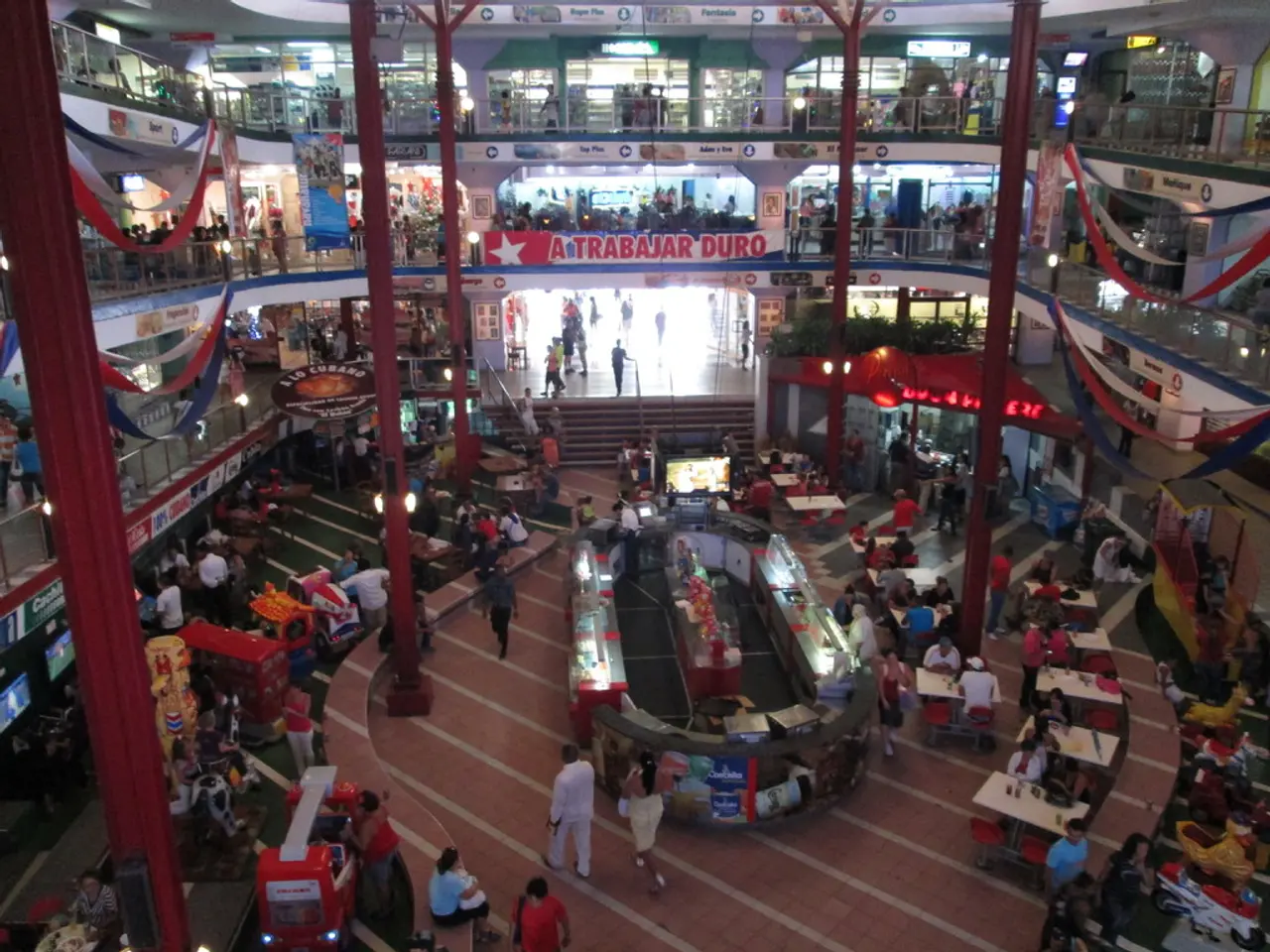Arding and Hobbs, a Fashion Retailer Under Fire
The historic Arding & Hobbs department store in Clapham Junction, originally constructed in 1910, has undergone a remarkable transformation. Developer W.RE and architects Stiff + Trevillion collaborated on a restoration project to adapt the building for modern use while preserving its rich history and character.
The restoration process involved revealing the building's original features, including exposed brick and stone walls, a stained-glass dome, and a large barrel-vaulted stained-glass roof. New construction elements were primarily made from timber, contributing to its carbon-neutral goal.
The building is now an office building equipped with high-efficiency mixed-mode ventilation with heat recovery, LED lighting, and a VRF system for heating, eliminating the need for gas. Energy efficiency was further improved by replacing non-original glazing and the addition of an onsite photovoltaic array, which generates a portion of the building's electricity.
The project was managed by Blackburn & Co, and the main contractor was Knight Harwood. Acoustic engineers involved in the project were Hann Tucker, and landscape architects were Jonathan Cook Landscape Architects. KM Heritage served as the heritage consultant, and Atelier Ten was the lighting consultant for the project.
A new eight-meter-tall 'crown' has been added to the building's roof, providing additional workspace and access to a rooftop terrace. Green and brown roofs, along with roof terrace plantings, have been added to enhance local biodiversity.
Approximately 30% of the total floorspace is dedicated to a mix of retail and leisure uses. The basement, ground, and first floors house tenants such as a gym, an Italian delicatessen, and a large corner cafe/restaurant.
During the refurbishment, a pre-existing clothing retailer, TK Maxx, continued trading. The store fell into disrepair after the closure of Debenhams in 2020.
The restoration project prioritized the retention of the existing building structure, reducing carbon impact through minimized embodied energy. New windows and a central lightwell have been added to bring natural light deeper into the building's floor plate.
The upper floors of the restored building offer flexible floorplate configurations for office space and potential future uses. The Arding & Hobbs department store, once a prominent fixture in Clapham Junction, has been revitalized into a modern, sustainable, and historically significant building.
Read also:
- Peptide YY (PYY): Exploring its Role in Appetite Suppression, Intestinal Health, and Cognitive Links
- Toddler Health: Rotavirus Signs, Origins, and Potential Complications
- Digestive issues and heart discomfort: Root causes and associated health conditions
- House Infernos: Deadly Hazards Surpassing the Flames








